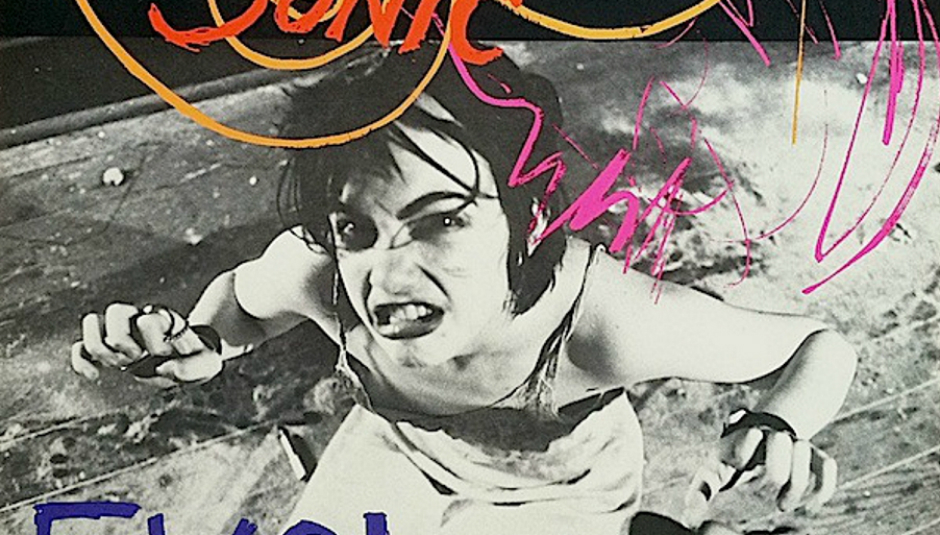In early 1986, Sonic Youth signed to SST Records. With the label’s founder, Black Flag’s Greg Ginn, keen for the label to branch out from its hardcore-centric roots (a standing it had confirmed via Hüsker Dü, the Minutemen and more) Sonic Youth stumbled upon their cue to graduate from no-wave contenders to alternative rock heroes with EVOL. Recorded with Martin Bisi throughout March 1986, it marked a creative quantum leap for the band that married noise-rock insularity with burgeoning melodic sensibility. With it, and perhaps without knowing it, Sonic Youth had lit a flare for the mainstream.
Introducing new drummer Steve Shelley - whose presence on EVOL can’t be overstated - one is instantly thrust into the drab netherworld of ‘Tom Violence’. Retaining a fixation with societal and psychic discord debuted on Confusion Is Sex and Bad Moon Rising, its plodding dread hints at painstaking process. The album’s sole single, ‘Star Power’ swiftly ups the ante; here, as on so many peaks in Sonic Youth’s three-decade career, Kim Gordon carries the song’s chorded exuberance and twin-guitar attack with quiet ease. Cresting on the album’s pièce de résistance, ‘Shadow of a Doubt’ and the clanging mantra of ‘Green Light’, Side One of EVOL comes and goes like a passing chimera.
But it’s Side Two where Sonic Youth come into their brazen, idiosyncratic own. Conjuring images of NYC psychosis and small-town ennui, Moore, Gordon, Ranaldo and Shelley concoct some of their most vital moments pre-Daydream Nation over 20 minutes. Where ‘Marilyn Moore’ and ‘Secret Girl’ make for masterfully mumbled forays into the doldrums of psychic regression, ‘Expressway To Yr. Skull’ is a first-rate eleven-minute experiment in locked-vinyl drone. Better Still, ‘In The Kingdom #19’ pairs Minutemen bassist Mike Watt with Thurston Moore’s stream-of-conscious poetry and one exquisite, furiously-maneuvered racket. Though a departure from the relative linearity of Side One, the more drawn-out explorations towards the end are almost certainly the upshot of pure, single-minded focus - not aimless trial-and-error.
Thirty-two years on, EVOL has every claim to being called Sonic Youth's mostly deftly atmospheric release. Haunting and dazzling, unknowable yet oddly familiar, its alternate-tuned twists and turns bound forth like the best soundtrack to some lost, low-budget B-movie. With the full extent of their craft on the cusp of being revealed, upon release, these ten dimly-lit trips forged backwashed imagery of 60s counterculture, Californian doom, 80s celebrity and industrial desolation into one brilliantly brooding, darkly gorgeous fever dream that spooks and consoles in perfect synchronicity.






















